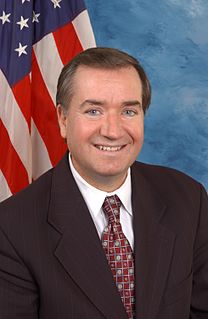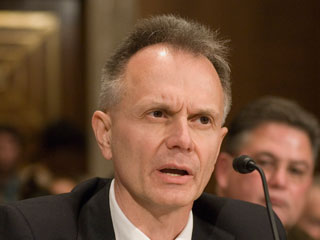A Quote by George Coyne
Science is and should be seen as "completely neutral" on the issue of the theistic or atheistic implications of scientific results.
Quote Topics
Related Quotes
It's a common perception that science and religion are mutually exclusive. But there are many scientists who would consider themselves to be spiritual people. Not only that, but in the case of climate change - a scientific issue with strong moral implications and difficult decisions to be made - it's essential to connect the science to our values. And for many of us, our values come from our faith.
Of course, the laws of science contain no matter and have no energy either and therefore do not exist except in people's minds. It's best to be completely scientific about the whole thing and refuse to believe in either ghosts or the laws of science. That way you're safe. That doesn't leave you very much to believe in, but that's scientific too.
Injection of environmental and political perspectives in midstream of the science discussion cannot help the process of inquiry. I believe that persons with relevant scientific expertise should concentrate, with pride, on cool objective analysis, providing information to the public and decision-makers when it is found, but leaving the moral implications for later common consideration, or at most for summary inferential discussion.
The basic question that the 'new science' raises for our balance sheet is the issue of what scientific questions have not been asked for 500 years, which scientific risks have not been pursued. It raises the question of who has decided what scientific risks were worth taking, and what have been the consequences in terms of the power structures of the world.
I think men of science as well as other men need to learn from Christ, and I think Christians whose minds are scientific are bound to study science that their view of the glory of God may be as extensive as their being is capable. But I think that the results which each man arrives at in his attempts to harmonize his science with his Christianity ought not to be regarded as having any significance except to the man himself, and to him only for a time, and should not receive the stamp of a society.
My practise as a scientist is atheistic. That is to say, when I set up an experiment I assume that no god, angel, or devil is going to interfere with its course; and this assumption has been justified by such success as I have achieved in my professional career. I should therefore be intellectually dishonest if I were not also atheistic in the affairs of the world. And I should be a coward if I did not state my theoretical views in public.
When people think science and cooking, they have no idea that it's not correctly expressed. We're actually applying the scientific method. People think chemistry and physics are science, but the scientific method is something else.... It's the science that the world of cooking generates: science of butter; science of the croissant.
To an extent that undermines classical standards of science, some purported scientific results concerning 'HIV' and 'AIDS' have been handled by press releases, by disinformation, by low-quality studies, and by some suppression of information, manipulating the media and people at large. When the official scientific press does not report correctly, or obstructs views dissenting from those of the scientific establishment, it loses credibility and leaves no alternative but to find information elsewhere.
The fundamental characteristic of the scientific method is honesty. In dealing with any question, science asks no favors. ... I believe that constant use of the scientific method must in the end leave its impress upon him who uses it. ... A life spent in accordance with scientific teachings would be of a high order. It would practically conform to the teachings of the highest types of religion. The motives would be different, but so far as conduct is concerned the results would be practically identical.






































